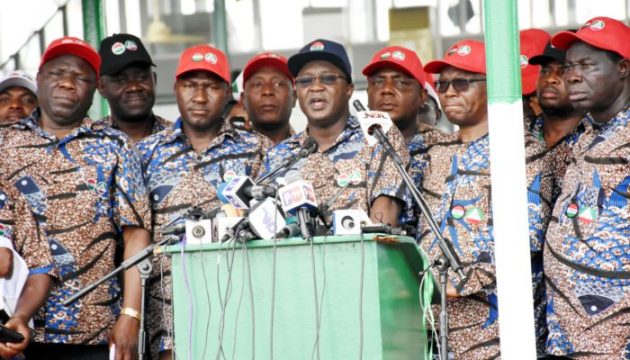
On Wednesday the Nigeria Labour Congress has warned against any further extension of the lockdown over the coronavirus pandemic in the country.
Recall that President Muhammadu Buhari had last week extended the lockdown in the FCT, Lagos and Ogun States for another 14 days.
Nigeria Labour Congress, NLC warned that the situation would get out hand if the lockdown exceeded one month.
Ayuba Wabba, Nigeria Labour Congress president, gave the warning yesterday in a letter he addressed to the chairman of the Presidential Task Force on COVID-19, Boss Mustapha.
“Within the first two weeks of the lockdown in some parts of the country, there were widespread acts of civil disobedience, inducement of law enforcement agents to gain passes and even various forms of violent crimes. No one is sure how long this dam would hold,” he said.
Ayuba Wabba said the NLC was interested in the recovery of jobs, restoration of income, and sustainability of livelihood.
Wabba noted that states under the total lockdown are the economic and administrative nerves centres of the country.
Ayuba Wabba said: “The truth is that our economy might relapse into prolonged coma if the current lockdown in the nation’s nerve centres goes beyond the current extension.”
Ayuba Wabba said the NLC and its civil society allies would engage government on various issues in order not to compound job losses, income shortfall and wage poverty at the end of the lockdown.
Wabba urged the PTF to include the labour union as a critical social partner in the inter-ministerial economic response team.
He the organised labour would set up situation room that would interface with the inter-ministerial committee on policy interventions and recommendations on post-COVID-19 economic response.
He said the situation room would engage with the federal government and relevant stakeholders on the expansion and distribution of palliatives and other social support initiatives in a manner that captures every Nigerian especially the working poor, daily income workers and other workers in the informal sector, leveraging on technology and interface with the committee.